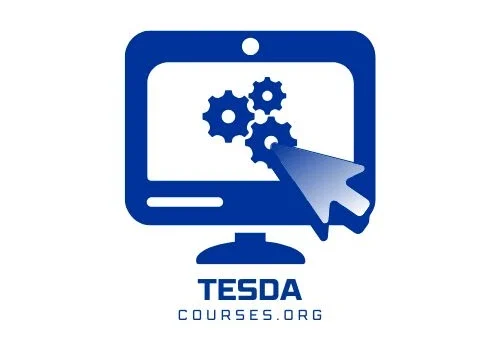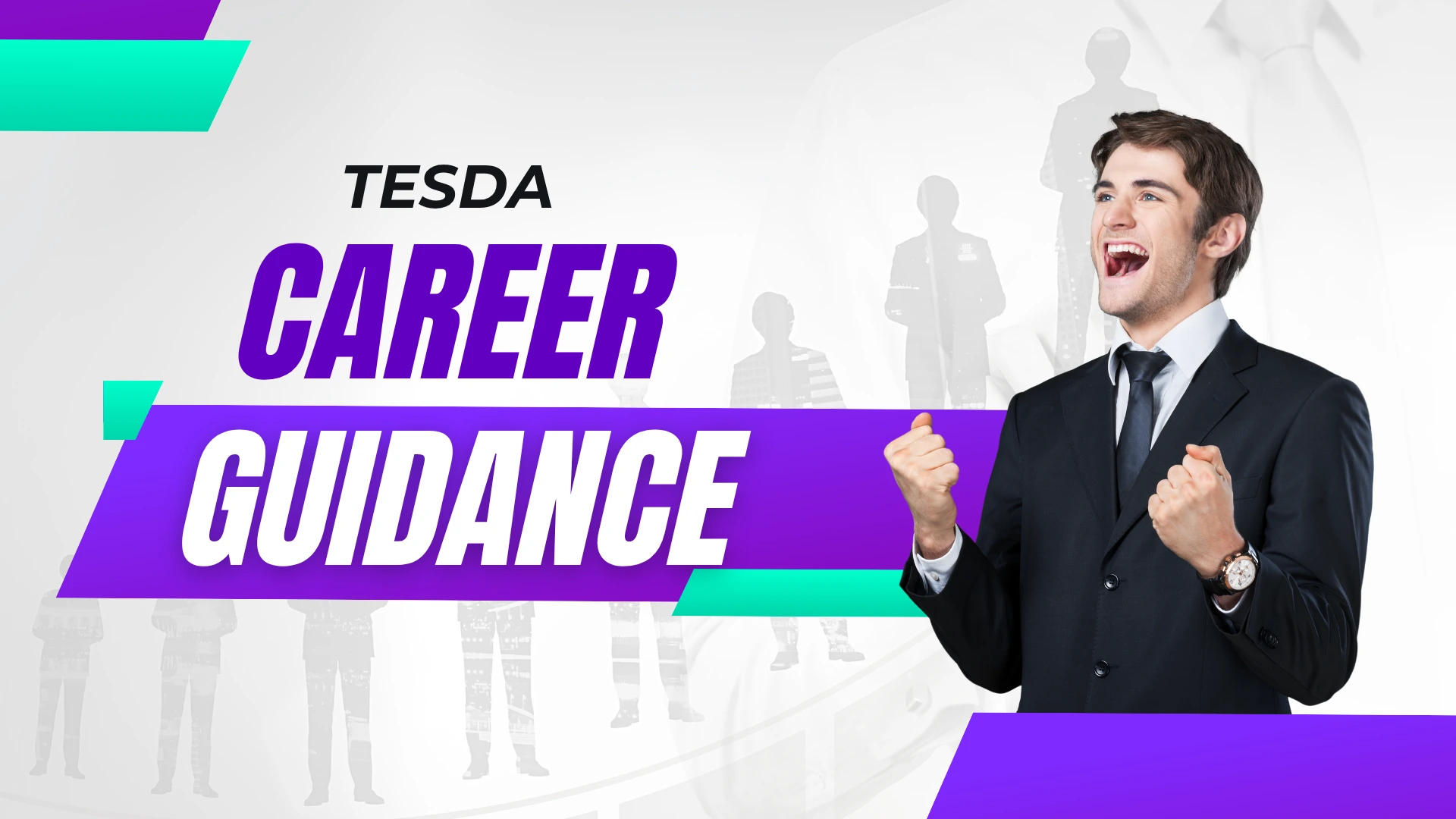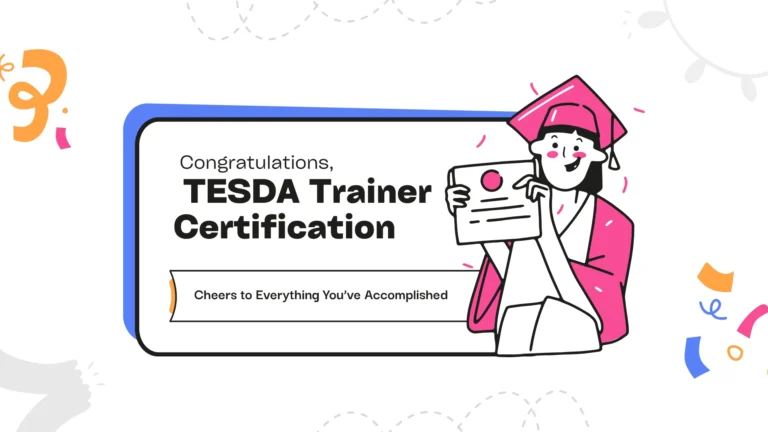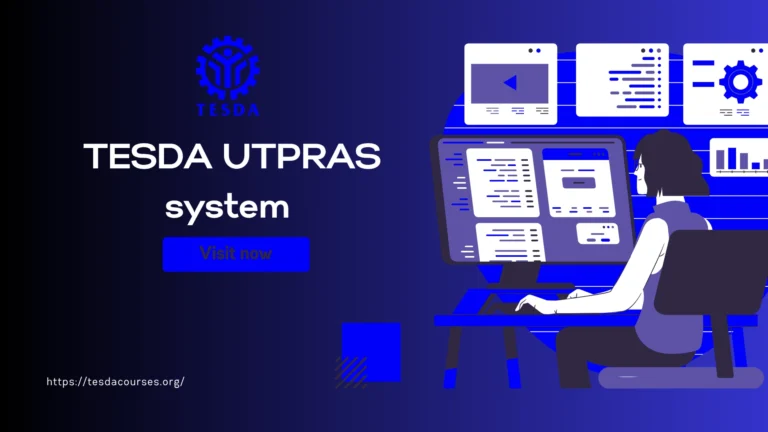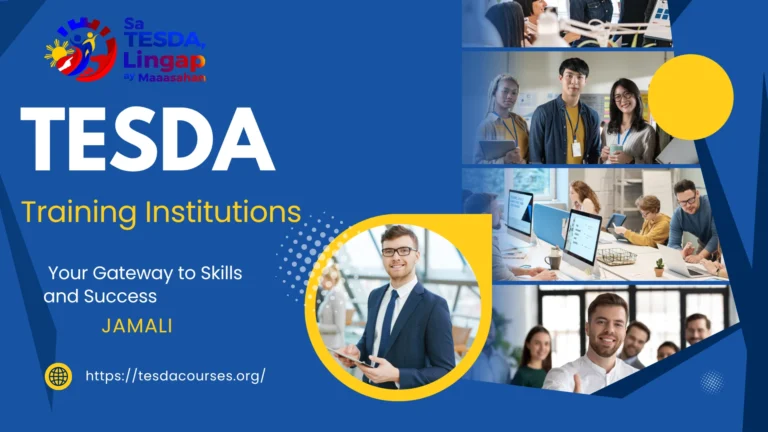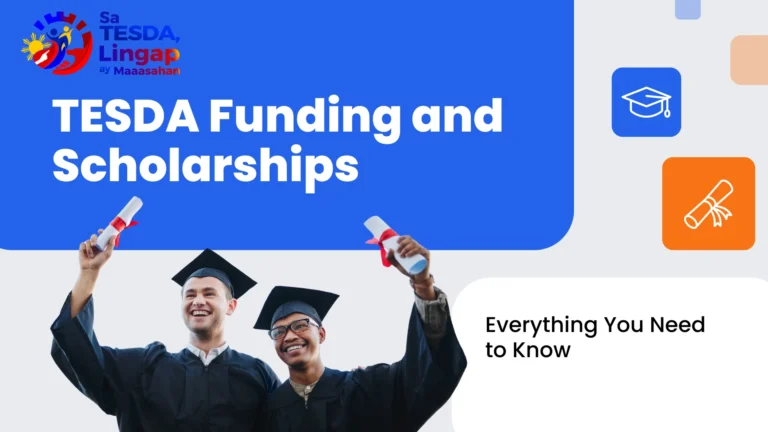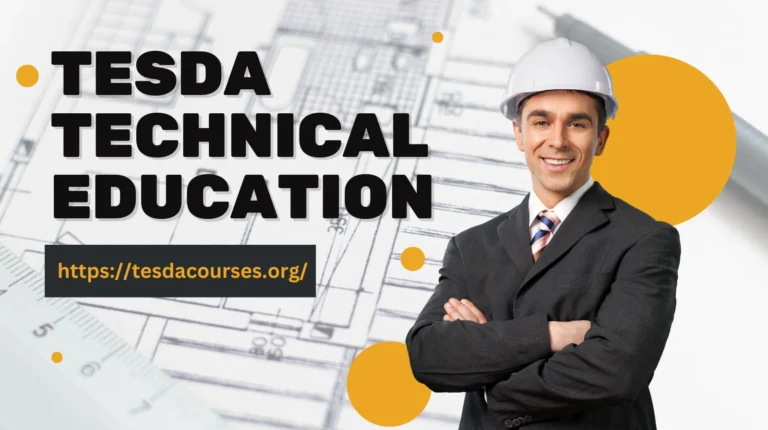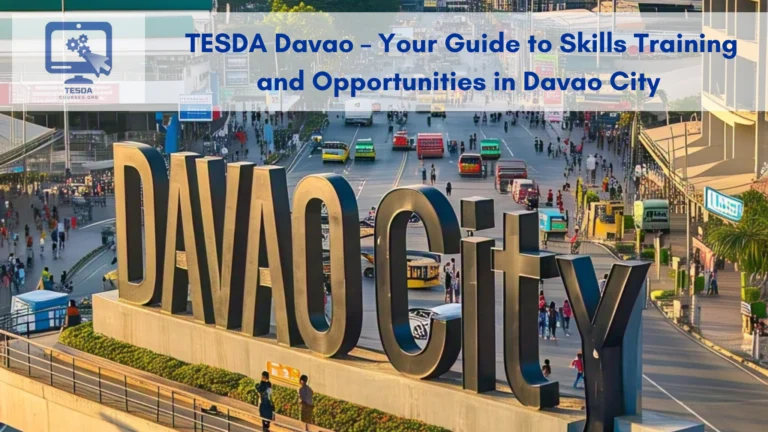TESDA Career Guidance: Your Complete Guide to Finding Your Path in the Philippines
Introduction: When I Almost Chose the Wrong Career Path
Picture this: You’re standing at a crossroads, staring at a dozen different paths, and someone’s asking you to pick one that’ll define the next decade of your life. No pressure, right?
I remember sitting in a cramped internet café in Manila, scrolling through endless course catalogs, feeling like I was playing career roulette. Should I go for hospitality? Automotive? Maybe IT? Each click felt like spinning a wheel with my future on the line.
That’s when I stumbled upon something that changed everything—TESDA Career Guidance.
If you’re an international student eyeing the Philippines for technical and vocational education, or you’re already here feeling lost in the sea of options, you’re in the right place. TESDA’s career guidance services aren’t just some bureaucratic checkbox you tick off. They’re actually a lifeline that helps you figure out what you’re good at, what you’ll enjoy, and most importantly, what’ll actually land you a job.
Let me walk you through everything you need to know about TESDA career guidance—from understanding what it really is to accessing online services, workshops, and assessments that’ll help you nail down your perfect career path.
What Exactly Is TESDA Career Guidance?
Let’s cut through the jargon. TESDA Career Guidance is basically your personal GPS for navigating the world of technical and vocational training in the Philippines.
The Technical Education and Skills Development Authority (TESDA) isn’t just about offering courses—they’ve built an entire ecosystem to help you make informed decisions about your future. Think of it as having a knowledgeable friend who knows the ins and outs of every technical career imaginable, understands the job market, and can point you toward opportunities you didn’t even know existed.
Why Career Guidance Matters (Especially If You’re an International Student)
Here’s the thing: Moving to a new country for education is already overwhelming. You’re dealing with cultural adjustments, visa paperwork, finding accommodation, and suddenly you’re expected to make life-altering career decisions? That’s a lot.
TESDA career counseling steps in to bridge that gap. The program helps you:
- Understand your strengths and interests through scientifically-designed assessments
- Explore career pathways that align with your personality and skills
- Get real information about job market trends and employment opportunities
- Navigate the Philippine technical education system without feeling lost
- Connect with training providers that match your career goals
- Plan your career trajectory from training to employment
For international students specifically, these services help you understand which skills are in-demand not just in the Philippines, but globally—especially important if you’re planning to return home or work abroad after completing your training.
The TESDA Career Guidance Framework: How It Actually Works
Alright, let’s break down the TESDA career guidance framework into bite-sized pieces that actually make sense.
Step 1: Career Assessment
This is where things get interesting. TESDA doesn’t just ask you “What do you want to be when you grow up?” and call it a day. They use proper TESDA career assessment tools that dig deeper into:
- Your aptitudes (what you’re naturally good at)
- Your interests (what makes you excited to get out of bed)
- Your values (what matters to you in a career)
- Your personality type (because not everyone thrives in the same environment)
The TESDA career interest assessment typically includes questionnaires, practical evaluations, and sometimes hands-on activities. It’s designed to reveal patterns about yourself you might not have noticed.
Step 2: Career Exploration
Once you’ve got your assessment results, the real exploration begins. This phase involves:
- Learning about different TESDA career pathways available
- Understanding what each technical course actually involves (day-to-day tasks, not just fancy titles)
- Exploring salary ranges and employment statistics
- Discovering related careers you hadn’t considered
Step 3: Career Planning
Now we’re getting tactical. The TESDA career planning process helps you create an actual roadmap:
| Planning Element | What It Covers | Why It Matters |
|---|---|---|
| Short-term goals | Choosing your immediate training program | Gets you started on the right path |
| Skill development | Identifying skills you need to acquire | Fills gaps between where you are and where you want to be |
| Training timeline | Mapping out course duration and schedules | Helps you plan financially and logistically |
| Employment strategy | Job search tactics and networking | Turns your training into actual employment |
| Long-term vision | Career advancement and specialization | Ensures you’re not stuck in a dead-end |
Step 4: Follow-up and Support
Here’s where TESDA separates itself from just handing you a brochure and wishing you luck. The TESDA career guidance and coaching includes ongoing support through:
- Regular check-ins during your training
- Adjustment of plans if your interests or circumstances change
- Job placement assistance
- Alumni networks and mentorship opportunities
Types of TESDA Career Guidance Services Available
TESDA offers multiple ways to access career guidance, which is brilliant because everyone has different preferences and circumstances.
1. In-Person Career Counseling
The traditional route—visiting TESDA career counseling centers in person. This works great if you prefer face-to-face interaction and want immediate feedback.
What happens during a session?
You’ll typically spend 1-2 hours with a trained career counselor who will:
- Administer assessment tools
- Review your results together
- Discuss your background, interests, and goals
- Explore suitable career options
- Create an initial action plan
Pro tip: Book appointments in advance, especially during enrollment seasons. TESDA centers can get swamped.
2. TESDA Online Career Guidance
Can’t make it to a physical center? No problem. TESDA online career guidance has become increasingly robust, especially post-pandemic.
The online platform offers:
- Self-administered career assessments
- Digital resources and career information
- Virtual counseling sessions via video call
- Downloadable career planning worksheets
- Online forums to connect with other students
How to access TESDA career guidance services online:
- Visit the official TESDA website (tesda.gov.ph)
- Look for the Career Guidance section or Online Services
- Create an account or log in
- Complete the online assessment tools
- Schedule a virtual counseling session if needed
- Access your personalized career recommendations
3. TESDA Career Guidance Workshops
These are group sessions that combine TESDA career guidance training with interactive activities. Workshops typically run for half a day to several days and cover:
- Self-assessment exercises
- Group discussions about different career paths
- Guest speakers from various industries
- Hands-on activities related to different trades
- Networking opportunities with peers and professionals
Finding TESDA career guidance workshops near you:
Check the TESDA regional offices’ social media pages and websites. They announce upcoming workshops regularly. Many are free or charge minimal fees for materials.
4. TESDA Career Coaching Sessions
Think of this as the premium, personalized version. TESDA career coaching online and in-person provides:
- One-on-one mentorship
- Deeper exploration of specific career paths
- Help with resume building and interview preparation
- Ongoing support throughout your training and job search
- Connections to potential employers
TESDA Career Guidance for Different Groups
One size doesn’t fit all, and TESDA gets that. They’ve tailored programs for specific audiences.
TESDA Career Guidance for Students
If you’re currently enrolled or about to enroll in a technical-vocational course, TESDA career guidance for students is integrated into many training programs. It helps you:
- Choose specializations within your field
- Plan for certifications and assessments
- Prepare for the transition from student to professional
- Access internship and OJT opportunities
The Ultimate Guide to TESDA Free Courses Online: Certificates, Allowances, and How to Enroll ?
TESDA Career Guidance for Adults
Career change at 30? 40? 50? Totally normal. TESDA career guidance for adults recognizes that many people discover new passions or need to pivot due to changing job markets.
Adult learners get:
- Recognition of prior learning and work experience
- Accelerated pathways based on existing skills
- Flexible scheduling options
- Career transition support
TESDA Career Guidance Programs for Youth
Young people just starting out get targeted support through TESDA career guidance programs for youth. These programs focus on:
- Building foundational career awareness
- Exploring multiple options before committing
- Understanding the value of technical-vocational careers
- Connecting education choices to real-world opportunities
TESDA Career Guidance for OFWs (Overseas Filipino Workers)
This is particularly relevant if you’re an international student or planning to work abroad. TESDA career guidance programs for OFWs help you:
- Identify skills that are in-demand internationally
- Understand certification requirements for different countries
- Prepare for overseas employment
- Plan for reintegration if you return to the Philippines
| Target Group | Focus Areas | Unique Benefits |
|---|---|---|
| Current Students | Course selection, specialization | Integrated support, internship connections |
| Adults | Career transition, skill upgrading | Prior learning recognition, flexible schedules |
| Youth | Career awareness, exploration | Multiple exposure opportunities, mentorship |
| OFWs | International standards, certifications | Global job market insights, reintegration support |
Popular TESDA Career Pathways to Consider
Let’s get specific. What TESDA career pathways are actually available, and which ones make sense for international students?
1. Information and Communication Technology (ICT)
Hot careers: Animation, programming, web development, cybersecurity, digital marketing
Why it’s great: Highly portable skills, work-from-anywhere opportunities, constantly evolving field
Typical training duration: 3-6 months for certificate programs
Job outlook: Excellent, with growing demand both locally and internationally
2. Tourism and Hospitality
Hot careers: Hotel management, culinary arts, tour guiding, events management, barista training
Why it’s great: Philippines is a tourism hotspot, hands-on learning, international opportunities
Typical training duration: 3-12 months depending on specialization
Job outlook: Strong, especially post-pandemic recovery
3. Automotive Technology
Hot careers: Automotive servicing, motorcycle repair, heavy equipment operation, automotive painting
Why it’s great: Always in-demand skills, potential for entrepreneurship, good earning potential
Typical training duration: 6-12 months
Job outlook: Stable with consistent demand
4. Construction and Trades
Hot careers: Welding, plumbing, electrical installation, carpentry, masonry
Why it’s great: Physical, hands-on work, excellent for those who don’t want desk jobs, entrepreneurship opportunities
Typical training duration: 3-9 months
Job outlook: Very strong, especially for skilled tradespeople
5. Health and Wellness
Hot careers: Massage therapy, caregiving, pharmacy assistance, dental aide
Why it’s great: Growing aging population, rewarding work, international job opportunities (especially caregiving)
Typical training duration: 2-6 months
Job outlook: Excellent, particularly for caregivers abroad
6. Agriculture and Fishery
Hot careers: Organic agriculture, aquaculture, food processing, landscape design
Why it’s great: Sustainability focus, entrepreneurship opportunities, connection to nature
Typical training duration: 2-6 months
Job outlook: Growing, especially with eco-tourism trends
The TESDA Career Guidance Process: A Step-by-Step Walkthrough
Okay, you’re convinced. You want to use TESDA career guidance services. Here’s exactly what the TESDA career guidance process looks like from start to finish.
Before Your First Session: Preparation
Gather these things:
- Valid ID (passport for international students)
- Educational transcripts or certificates
- Resume or CV if you have one
- List of careers you’re curious about (even if you’re totally unsure)
- Questions you want answered
- Notebook and pen
Do some self-reflection:
- What subjects did you enjoy in school?
- What activities make you lose track of time?
- What are you naturally good at?
- What kind of work environment appeals to you?
- What are your deal-breakers? (Things you absolutely don’t want in a career)
During the Session: What to Expect
Phase 1: Introduction and Rapport Building (15-20 minutes)
Your counselor will explain the process, understand your background, and make you comfortable. Don’t be nervous—they’ve seen thousands of confused students. You’re not alone.
Phase 2: Assessment Administration (30-45 minutes)
You’ll complete various assessments. These might include:
- Interest inventories
- Aptitude tests
- Personality assessments
- Values clarification exercises
Be honest. There are no “right” answers—only answers that accurately reflect who you are.
Phase 3: Results Discussion (30-45 minutes)
This is where things click. Your counselor will:
- Interpret your assessment results
- Highlight patterns and insights
- Suggest career pathways that match your profile
- Answer your questions
- Address any concerns
Phase 4: Action Planning (20-30 minutes)
Together, you’ll create a concrete next-steps plan:
- Specific courses to explore
- Schools or training centers to visit
- Skills to develop
- Timeline for decision-making
- Follow-up appointment if needed
After the Session: Taking Action
Don’t let that plan collect dust! Here’s what successful students do:
- Visit recommended training centers within two weeks
- Talk to current students in your fields of interest
- Research job markets for your shortlisted careers
- Try before you buy if possible (workshops, short courses)
- Schedule follow-up with your counselor as needed
TESDA Career Assessment Tools: What Gets Measured
Let’s geek out for a minute about the actual TESDA career guidance assessment tools. Understanding what they measure helps you get more value from them.
Holland’s RIASEC Model
Many TESDA assessments use this framework, which categorizes interests into six types:
R – Realistic: Hands-on, practical, mechanical work Careers: Welding, automotive, construction
I – Investigative: Analytical, scientific, problem-solving Careers: Computer programming, research, technical analysis
A – Artistic: Creative, expressive, innovative Careers: Graphic design, culinary arts, animation
S – Social: Helping, teaching, serving others Careers: Caregiving, customer service, training
E – Enterprising: Leading, persuading, selling Careers: Entrepreneurship, sales, management
C – Conventional: Organizing, systematizing, detail work Careers: Office administration, accounting, records management
Your results typically show a combination of these types, giving a more nuanced picture.
Multiple Intelligences Assessment
Based on Howard Gardner’s theory, this identifies your strongest types of intelligence:
- Linguistic (word smart)
- Logical-mathematical (number smart)
- Spatial (picture smart)
- Bodily-kinesthetic (body smart)
- Musical (music smart)
- Interpersonal (people smart)
- Intrapersonal (self smart)
- Naturalist (nature smart)
Work Values Inventory
This clarifies what you need in a career to feel satisfied:
- Achievement (accomplishment, mastery)
- Independence (autonomy, self-direction)
- Recognition (prestige, status)
- Relationships (teamwork, social interaction)
- Support (helpful supervisors, training)
- Working conditions (safety, comfort)
Benefits of TESDA Career Coaching: Beyond the Basics
TESDA career coaching online benefits and in-person advantages go way beyond just picking a course. Here’s what people don’t talk about enough:
1. Confidence Building
When you’ve done the assessments and planning, you stop second-guessing yourself constantly. You have data backing up your decision. That confidence radiates in interviews, networking situations, and even in the classroom.
2. Realistic Expectations
Career coaches don’t sugarcoat things. They’ll tell you if a field is oversaturated, if the salary ranges are lower than you think, or if the working conditions might not match your lifestyle preferences. Better to know now than after investing time and money.
3. Hidden Opportunities
Counselors know about niche specializations, emerging fields, and opportunities that aren’t widely advertised. They might suggest career paths you’ve never heard of that perfectly match your profile.
4. Network Access
TESDA career counselors are connected—to employers, training providers, alumni, and industry professionals. That network becomes your network.
5. Motivation and Accountability
Having someone check in on your progress keeps you moving forward. It’s like having a career gym buddy.
TESDA Career Guidance Scholarship: Funding Your Future
Here’s something exciting: TESDA career guidance scholarship programs can help fund not just your training, but sometimes the career guidance services themselves.
Types of Scholarships Available
1. Training for Work Scholarship Program (TWSP)
- Covers full training costs
- Includes assessment fees
- Sometimes includes allowances
2. Private Education Student Financial Assistance (PESFA)
- For students in private TESDA-registered schools
- Merit and need-based
3. Special Training for Employment Program (STEP)
- For disadvantaged youth
- Includes career guidance components
4. Scholarships for OFWs and Dependents
- Specifically for overseas workers and their families
- Includes career transition support
The Complete Guide to TESDA Scholarships: How to Get Your Allowance and Train for Free
How Career Guidance Connects to Scholarships
When you go through proper TESDA career guidance and development, counselors can:
- Identify scholarships you qualify for
- Help you articulate your career goals in applications
- Connect you with scholarship coordinators
- Guide you toward high-impact programs with funding available
Pro tip: Some TESDA career guidance workshops themselves are free or scholarship-eligible. Always ask about funding options.
TESDA Career Counseling Centers: Where to Go
Time for the practical stuff. Where exactly are these TESDA career counseling centers located?
Finding Centers Near You
TESDA has offices in every region of the Philippines. The main categories are:
1. TESDA Regional Offices
- Comprehensive services
- Usually in provincial capitals
- Full range of assessments available
2. TESDA Provincial Offices
- Available in most provinces
- Basic career guidance services
- May refer complex cases to regional offices
3. Partner Training Centers
- Many TESDA-accredited schools offer career guidance
- Convenient if you’re already enrolled
- Quality varies, so verify credentials
How to Contact and Schedule
Online:
- Visit tesda.gov.ph and check the “Regional Offices” section
- Many regions have dedicated social media pages
- Email addresses usually follow the format: [region]@tesda.gov.ph
Phone:
- TESDA hotlines: Check the official website for updated numbers
- Regional office direct lines (listed on their pages)
Walk-in:
- Most offices accept walk-ins, but appointments are faster
- Bring valid IDs and patience during busy seasons
| Region | Main Office Location | Contact Information | Services Available |
|---|---|---|---|
| NCR | Taguig City | (02) 8893-XXXX | Full career guidance, assessments, workshops |
| CAR | Baguio City | (074) 442-XXXX | Career counseling, online services |
| Region I | San Fernando, La Union | (072) 607-XXXX | Career pathways, OFW programs |
| Region IV-A | Calamba City, Laguna | (049) 545-XXXX | Student guidance, adult programs |
(Note: Contact information should be verified on official TESDA website)
Important Topics Covered in TESDA Career Guidance
What exactly gets discussed in TESDA career guidance topics? Let’s break down the curriculum:
Core Topics
Self-Assessment and Awareness
- Understanding your personality type
- Identifying strengths and weaknesses
- Values clarification
- Interest exploration
Labor Market Information
- Current job market trends
- In-demand skills and occupations
- Salary expectations and ranges
- Employment projections
Educational Pathways
- TESDA course offerings
- Duration and requirements
- Costs and financial aid
- Certification processes
Career Development Strategies
- Goal setting techniques
- Action planning
- Decision-making frameworks
- Overcoming barriers
Job Search Skills
- Resume and portfolio development
- Interview preparation
- Networking strategies
- Using online job platforms
Workplace Readiness
- Professional behavior
- Communication skills
- Problem-solving
- Continuous learning mindset
Specialized Topics for International Students
- Work permit and visa considerations
- International credential recognition
- Cultural adaptation in the workplace
- Language proficiency requirements
- Repatriation planning
TESDA Courses for Abroad: The Ultimate Guide to In-Demand NC II & NC III Certifications
TESDA Career Guidance Documents: What You’ll Need
Bureaucracy alert! Here are the TESDA career guidance documents you should prepare:
For Initial Consultation
Required:
- Valid government-issued ID (passport for international students)
- Proof of residence or current address
- Educational background documents (diplomas, transcripts)
Helpful:
- Resume or CV
- Portfolio (if applicable to your field)
- Any previous assessment results
- Medical clearance (for some programs)
For Enrollment After Guidance
Once you’ve chosen your path, you’ll need:
- Completed application forms
- Birth certificate (or equivalent)
- Medical certificate
- Police clearance (for some courses)
- Passport-sized photos
- Proof of scholarship or payment
Documents You’ll Receive
After Assessment:
- Career assessment results report
- Personalized career recommendations
- Action plan worksheet
- Resource lists (schools, contacts, further reading)
Keep these! They’re useful for future reference, especially if you work with different counselors or return for follow-up services.
The TESDA Career Interest Test: What to Expect
Let’s zoom in on one of the most popular tools: the TESDA career interest test.
Format and Duration
- Time: Usually 30-60 minutes
- Format: Questionnaire-based, sometimes with practical components
- Setting: Can be completed online or in-person
- Language: Available in English and Filipino
Sample Questions
While I can’t give you actual test questions (they’re proprietary), here’s the flavor of what you’ll encounter:
“Rank these activities from most to least appealing:”
- Repairing a car engine
- Creating a website
- Teaching a class
- Organizing files
- Painting a mural
“How much do these statements describe you?”
- “I enjoy working with my hands”
- “I like solving complex problems”
- “I prefer working alone”
- “I’m good at persuading people”
Interpreting Your Results
Results typically show:
- Your top 3-5 career interest areas
- Specific occupations matching your profile
- Suggested TESDA courses to explore
- Potential career pathways
Important: These tests are guides, not mandates. If something doesn’t feel right, discuss it with your counselor. You know yourself better than any test.
TESDA Career Development Programs: Growing Beyond Your First Job
Getting your first job is just the beginning. TESDA career development programs help you think long-term.
Continuing Education Pathways
Skill Enhancement Programs:
- Advanced modules in your field
- Emerging technology training
- Management and supervision courses
Ladderized Education:
- TESDA courses that articulate with college programs
- Earn credits toward a degree while working
- Flexible, part-time options
Specialization Tracks:
- Niche expertise within your field
- Certification in advanced techniques
- Cross-training in complementary skills
Career Progression Support
TESDA helps you plan for advancement through:
Competency Assessment and Certification:
- Regular skills assessment
- National certification programs
- International credential recognition
Entrepreneurship Training:
- Business development modules
- Financial management for small business
- Marketing and customer service
Leadership Development:
- Supervisor training
- Project management
- Team leadership skills
Common Mistakes to Avoid with TESDA Career Guidance
Let me save you some headaches. Here are mistakes I’ve seen (and made myself):
1. Rushing the Decision
The Mistake: Taking the first course suggested without thorough exploration
The Fix: Use career guidance as an exploration phase. Visit multiple training centers, talk to professionals in the field, maybe even shadow someone for a day before committing.
2. Ignoring Your Gut
The Mistake: Choosing based purely on salary or job availability, despite having zero interest
The Fix: Balance practical considerations with personal fulfillment. The highest-paying job won’t matter if you’re miserable every day.
3. Dismissing Assessment Results
The Mistake: “The test got it wrong, I’m not like that at all”
The Fix: If results feel off, dig deeper with your counselor. Sometimes the disconnect reveals something important about self-perception versus reality.
4. Not Following Up
The Mistake: Getting guidance, filing it away, and never taking action
The Fix: Create accountability. Set deadlines, tell friends your plans, schedule follow-ups, take one concrete step within 48 hours of your session.
5. Comparing Your Path to Others
The Mistake: “My classmate is doing IT, so maybe I should too”
The Fix: Your journey is yours. Someone else’s perfect career might be your nightmare. Trust your assessments and counselor recommendations.
TESDA Career Guidance FAQs: Your Questions Answered
Is TESDA career guidance free?
Most basic career guidance services at TESDA regional and provincial offices are free. Some specialized workshops or intensive coaching programs may have minimal fees, but they’re typically very affordable (often under 500 pesos). Many services are scholarship-eligible.
How long does the career guidance process take?
An initial assessment and counseling session typically takes 2-3 hours. The full career guidance process, including exploration and decision-making, might span several weeks to a few months, depending on your needs and pace.
Can I access TESDA career guidance if I’m an international student?
Absolutely! TESDA welcomes international students. Bring your passport and student visa documentation. Some counselors specialize in helping international students navigate unique considerations like work permits and credential recognition.
What if I’ve already started a course and want to switch?
Not a problem. TESDA career counselors regularly help people redirect. Be honest about why the current course isn’t working, and they’ll help you find a better fit. Some training hours might transfer to a related program.
Do I need to know Filipino to use TESDA services?
No. Many TESDA counselors speak English, especially in urban areas and regions with many international students. The online materials are available in English. However, learning basic Filipino will definitely enhance your overall experience in the Philippines.
Can TESDA help me find a job after training?
Yes, to an extent. While TESDA isn’t a recruitment agency, they offer job search support, maintain connections with employers, facilitate job fairs, and can refer you to job placement services. The TESDA career guidance and development approach includes employment preparation.
How often can I use TESDA career guidance services?
As often as you need! You can return for reassessment if your interests change, for help with career transitions, or for ongoing coaching throughout your training and employment journey.
Are TESDA career assessments accurate?
They’re scientifically designed and validated tools, but they’re not crystal balls. Think of them as really good mirrors—they reflect patterns you might not see clearly on your own. Combine assessment results with counselor insights and your own self-knowledge for best results.
Real Stories: How TESDA Career Guidance Changed Lives
Let me share some real experiences (names changed for privacy):
Maria’s Story: From Confused to Confident
Maria, a 19-year-old from Vietnam studying in Manila, was torn between nursing (parent’s choice) and graphic design (her passion). After TESDA assessment, she discovered strong artistic and spatial intelligence but also people skills that could serve her well.
The counselor suggested Animation NC II—a perfect middle ground. Maria could exercise creativity while working in a collaborative field with healthcare animation potential (medical illustrations, educational videos). Two years later, she’s working remotely for an international company, making her parents proud while doing what she loves.
Lesson: Sometimes the answer isn’t choosing between options—it’s finding the third option you didn’t know existed.
Roberto’s Journey: Career Change at 45
Roberto had worked in retail management for 20 years but felt burned out. TESDA career guidance for adults helped him discover an aptitude for precision work and a long-suppressed interest in electrical systems.
He enrolled in Electrical Installation and Maintenance, completed it in 10 months, and now runs his own electrical services business. “I thought I was too old to start over,” he says. “TESDA showed me I was exactly the right age—experienced enough to be professional, young enough to build something.”
Lesson: It’s never too late to align your work with your strengths.
Making the Most of Your TESDA Career Guidance Experience
Here are insider tips to maximize the value:
Before You Go
- Do preliminary research on careers that interest you
- Write down questions you want answered
- Complete any online pre-assessments available
- Clear your schedule so you’re not rushed
- Get mentally prepared to be honest about your doubts and fears
During the Session
- Be completely honest in assessments—lying to yourself helps no one
- Ask “why” questions to understand the reasoning behind recommendations
- Take notes liberally
- Request clarification if something doesn’t make sense
- Discuss concerns openly—good counselors want to address them
After the Session
- Review your notes within 24 hours while fresh
- Research recommended careers thoroughly
- Visit suggested schools or training centers
- Talk to people in your fields of interest
- Schedule follow-up if needed
The Future of TESDA Career Guidance: What’s Coming
TESDA career guidance services online continue to evolve. Here’s what’s on the horizon:
Technology Integration
- AI-powered preliminary assessments
- Virtual reality career previews (try before you train)
- Mobile apps for ongoing career management
- Online peer mentoring platforms
Enhanced Accessibility
- 24/7 chatbot support for basic queries
- Multi-language services expansion
- Remote counseling via video for rural areas
- Partnerships with international career services
Data-Driven Insights
- Real-time labor market data integration
- Predictive analytics for emerging careers
- Success tracking of career paths
- Alumni networks for peer guidance
Your Next Steps: Creating Your Career Action Plan
Alright, we’ve covered a lot. Now it’s your turn to act. Here’s your personalized action plan template:
This Week
- [ ] Visit tesda.gov.ph and explore the career guidance section
- [ ] Make a list of 5 careers that interest you
- [ ] Schedule an appointment at your nearest TESDA office
- [ ] Prepare your documents
This Month
- [ ] Complete your career assessment session
- [ ] Research your top 3 recommended career paths
- [ ] Visit at least 2 training centers
- [ ] Talk to 3 people working in your fields of interest
- [ ] Draft your career goals statement
Next 3 Months
- [ ] Make your final career/course decision
- [ ] Apply for scholarships or financial aid
- [ ] Enroll in your chosen program
- [ ] Connect with classmates and start networking
- [ ] Schedule a follow-up guidance session
Conclusion: Your Career, Your Choice, Your Future
Here’s what I wish someone had told me when I was staring at those course catalogs in that Manila internet café: You don’t have to figure it all out alone.
TESDA career guidance isn’t just about picking a course from a list. It’s about understanding yourself—your strengths, your passions, your values—and aligning them with real opportunities in the world. It’s about making informed decisions rather than guesses. It’s about having support as you navigate one of life’s biggest choices.
For international students in the Philippines, you’re in a unique position. You’re already brave enough to study in a new country. Now take that courage one step further and invest time in proper career planning through TESDA’s services. The few hours you spend in career guidance can save you years of career dissatisfaction.
The Philippines’ technical and vocational education system is world-class, and TESDA’s career guidance services are a hidden gem that can transform your educational journey from overwhelming to empowering.
Whether you’re fresh out of high school, considering a career change, planning to work abroad, or simply exploring your options, TESDA career guidance meets you where you are. The counselors have seen thousands of students walk through their doors feeling lost and leave with clarity, confidence, and a concrete plan.
Your career isn’t just about making money—it’s about building a life that feels meaningful, engaging, and authentic to who you are. TESDA career guidance helps you do exactly that.
So here’s my challenge to you: Don’t wait. Don’t overthink it. Pick up your phone right now and search for the nearest TESDA office. Send that email. Make that appointment. The career of your dreams is waiting—but you have to take the first step.
And when you walk into that TESDA office for your first career guidance session, remember this: Every successful person you admire had to start somewhere, had to make choices, had to take leaps of faith. This is your moment. Make it count.
Additional Resources and Tools
To help you on your journey, here are some valuable resources:
Official TESDA Resources
- TESDA Official Website: www.tesda.gov.ph
- TESDA Online Program: Free courses to explore different fields
- TESDA Job Portal: Connect with employers
- Regional Office Directory: Find your nearest center
Career Exploration Tools
- O*NET Online: Detailed occupational information
- Philippine Labor Market Information: Current employment data
- Industry Association Websites: Connect with professionals in your field
- YouTube Career Channels: Virtual job shadowing
Networking Platforms
- LinkedIn: Professional networking (yes, even for technical careers)
- TESDA Alumni Groups: Facebook communities for specific courses
- Industry Forums: Reddit, Discord servers for your field
- Local Professional Organizations: Chamber of Commerce, trade associations
Financial Planning Resources
- TESDA Scholarship Portal: Updated scholarship opportunities
- Student Loan Options: For international students
- Budget Planning Apps: Track training expenses
- Cost-of-Living Calculators: Estimate expenses in different Philippine cities
Special Considerations for International Students
Let’s talk about some unique aspects of TESDA career guidance specifically for international students studying in the Philippines.
Understanding the Philippine Job Market
The Philippine economy has specific growth sectors that offer excellent opportunities:
Business Process Outsourcing (BPO): The Philippines is a global leader in BPO services. Skills in customer service, technical support, and back-office operations are highly valued.
Tourism and Hospitality: With millions of tourists annually, trained hospitality professionals are always in demand. Plus, skills learned here transfer globally.
Construction and Infrastructure: The “Build, Build, Build” program has created massive demand for skilled tradespeople—welders, electricians, plumbers, and heavy equipment operators.
Healthcare Services: The Philippines exports thousands of healthcare workers annually. Caregiving, nursing assistance, and health services training can open international doors.
Technology and Digital Services: From animation to software development to digital marketing, tech skills trained in the Philippines are globally competitive.
Work Authorization and Visa Considerations
This is crucial: Your career planning needs to align with work authorization realities.
While Studying:
- Most student visas allow limited work hours
- On-campus employment is usually permitted
- OJT and internships are part of your training
After Graduation:
- Research work visa requirements early
- Some TESDA courses have pathways to work permits
- Consider fields with international portability
- Talk to your career counselor about visa-friendly career paths
Returning Home:
- TESDA certifications are internationally recognized
- Some courses align with certifications in other countries
- Career counselors can help you understand credential transfer
Cultural Adaptation in Career Planning
Filipino workplace culture has unique characteristics:
Relationship-Oriented: Personal connections matter a lot. Networking isn’t just professional—it’s personal. Your TESDA network can become lifelong career support.
Respect for Hierarchy: Understanding workplace hierarchy and showing proper respect is important. This doesn’t mean you can’t grow—it means understanding cultural norms.
Flexibility and Adaptability: “Filipino time” is real, and flexibility in plans is often expected. Build this into your career expectations.
Family Considerations: Filipino culture places high value on family. Your career counselor will understand if family obligations affect your planning.
Maximizing ROI from Your TESDA Training
Let’s talk money. You’re investing time, tuition, and opportunity cost into your training. Here’s how to maximize returns:
Before Enrollment
Research Salary Ranges: Don’t just trust marketing materials. Talk to actual graduates. Check job postings for salary information. Use sites like JobStreet Philippines to see real compensation data.
Calculate Total Costs:
- Tuition and fees
- Materials and equipment
- Transportation
- Accommodation (if relocating)
- Certification exam fees
- Job search expenses
Expected Timeline to Employment: How long does it typically take graduates to find work? What’s the placement rate? TESDA counselors have this data.
During Training
Build Your Portfolio: Document your projects, create a portfolio of work, take before-and-after photos of your work (especially for trades like welding, automotive, culinary).
Network Aggressively: Every classmate is a future colleague. Every instructor is a potential reference. Every guest speaker is a possible employer contact.
Pursue Extra Certifications: If your main course is electrical installation, maybe add industrial safety certification. Layer skills for competitive advantage.
Practice Communication: Technical skills get you the interview. Communication skills get you the job. Practice explaining your work clearly.
After Graduation
Get Certified Quickly: Don’t delay taking your TESDA certification exams. Fresh knowledge = better performance.
Start Your Job Search Early: Begin networking and applying before graduation. Many jobs are filled before they’re even posted publicly.
Consider Entrepreneurship: Many TESDA graduates start their own businesses. Your career counselor can connect you with entrepreneurship resources.
Stay Connected: Keep in touch with TESDA career services. Many offer job placement assistance even after graduation.
| Career Path | Average Training Cost | Training Duration | Average Starting Salary | Time to ROI |
|---|---|---|---|---|
| Welding | ₱25,000-40,000 | 6 months | ₱18,000-25,000/month | 2-3 months |
| Web Development | ₱30,000-50,000 | 3-6 months | ₱20,000-35,000/month | 2-3 months |
| Culinary Arts | ₱40,000-80,000 | 6-12 months | ₱15,000-22,000/month | 3-5 months |
| Caregiving | ₱15,000-25,000 | 3 months | ₱18,000-30,000/month (abroad: much higher) | 1-2 months |
| Automotive | ₱30,000-55,000 | 6-9 months | ₱16,000-24,000/month | 2-4 months |
Note: Costs and salaries are approximate and vary by location and specific program
Overcoming Common Career Guidance Obstacles
Even with great services available, people face barriers. Let’s tackle them:
“I Don’t Have Time”
The Reality: You don’t have time NOT to do this. A few hours of career guidance can prevent years of career misery.
The Solution:
- Use online services that fit your schedule
- Many offices have evening or weekend hours
- Even a single session is better than none
- Think of it as an investment, not an expense of time
TESDA Courses for Abroad: The Ultimate Guide to In-Demand NC II & NC III Certifications
“I’m Still Confused After Guidance”
The Reality: That’s actually normal. Career decisions are complex. Confusion doesn’t mean the guidance failed.
The Solution:
- Schedule follow-up sessions
- Give yourself permission to explore multiple options
- Try short workshops in different fields before committing
- Talk to people actually working in your fields of interest
- Remember: You can always pivot later
“The Recommended Careers Don’t Excite Me”
The Reality: Assessment tools are guides, not gospel. If recommendations feel wrong, that’s important information.
The Solution:
- Dig deeper with your counselor about why the disconnect
- Sometimes our self-image differs from our actual interests
- Other times, the assessment genuinely missed something
- Request alternative pathways
- Consider that excitement sometimes comes after competence, not before
“I Can’t Afford the Training”
The Reality: TESDA has more scholarship opportunities than most people realize.
The Solution:
- Ask your career counselor specifically about scholarships
- Research employer-sponsored training programs
- Consider part-time training while working
- Look into payment plans at training centers
- Some centers offer work-study arrangements
“I’m Too Old/Young”
The Reality: TESDA serves learners from teens to retirees. Age is a factor but not a barrier.
The Solution:
- Seek counselors who specialize in your age group
- Adult learners often excel due to maturity and focus
- Young learners bring energy and tech-savviness
- Both have unique advantages—use yours
TESDA Career Guidance Success Metrics: Is It Working?
How do you know if career guidance actually helped? Here are signs you’re on the right track:
Short-Term Indicators (Within 3 Months)
✓ You can clearly articulate why you chose your training program ✓ You feel confident in your decision (even if a bit nervous) ✓ You’ve connected with classmates and instructors ✓ You understand your career pathway beyond just the course ✓ You have a plan for certification and job search
Medium-Term Indicators (6-12 Months)
✓ You’re engaged and motivated in your training ✓ You’re building relevant skills and portfolio ✓ You’ve started networking in your chosen field ✓ You can see how your training connects to employment ✓ You’ve refined your initial career plan based on experience
Long-Term Indicators (1-3 Years)
✓ You’re employed in your field or successfully running a business ✓ You feel your work aligns with your strengths and interests ✓ You’re continuing to develop professionally ✓ You can mentor others in your field ✓ You have no major regrets about your career choice
If you’re not hitting these markers, that’s okay—go back to TESDA career services. Career guidance isn’t one-and-done. It’s an ongoing relationship.
TESDA Courses for Abroad: The Ultimate Guide to In-Demand NC II & NC III Certifications
Final Thoughts: The Career You Deserve
I started this article talking about standing at a crossroads, feeling overwhelmed by choices. If you’re feeling that way right now, I want you to know something: That feeling is temporary, but the decision you make will shape years of your life.
TESDA career guidance won’t magically remove all uncertainty. It won’t guarantee success. It won’t make the hard work of training disappear.
But here’s what it WILL do:
It will give you clarity when everything feels foggy. It will provide data when you’re drowning in opinions. It will offer support when you feel alone in your decision. It will create structure when the path forward seems chaotic.
Most importantly, it will help you make a choice you can stand behind—a choice based on who you actually are, not who you think you should be or who others expect you to become.
The technical and vocational education path isn’t second-best. It isn’t a backup plan. It’s a legitimate, respectable, and often more practical route to a fulfilling career than traditional university education. The world needs skilled welders as much as it needs corporate lawyers. It needs talented chefs as much as it needs engineers. It needs creative animators as much as it needs doctors.
Your hands can build things. Your skills can solve problems. Your training can change lives—starting with your own.
So take that first step. Visit the TESDA website. Make that appointment. Complete that assessment. Ask those questions. Trust the process.
Your future self will thank you.
Take Action Today
Don’t let this be just another article you read and forget. Here’s what you need to do RIGHT NOW:
Step 1: Bookmark this article for reference
Step 2: Visit www.tesda.gov.ph and find your regional office
Step 3: Call or email to schedule your career guidance appointment
Step 4: Prepare your documents and questions
Step 5: Show up and be honest about your hopes, fears, and goals
The best time to invest in your career was yesterday. The second-best time is today.
What are you waiting for? Your career isn’t going to plan itself. Get started!
About Career Guidance at TESDA: This comprehensive guide is designed to help international students and local learners navigate TESDA’s career guidance services. For the most current information, always verify details with your local TESDA office or visit the official website at www.tesda.gov.ph.
Have questions or experiences with TESDA career guidance? Share them in the comments below! Your insights could help future students make better decisions.
Related Articles You Might Find Helpful:
- Complete Guide to TESDA Scholarships for International Students
- Top 10 In-Demand TESDA Courses in 2025
- How to Get TESDA Certification: Step-by-Step Process
- Living in the Philippines as an International Student
- From TESDA Graduate to Successful Entrepreneur: Real Stories
